1. Walter Cronkite
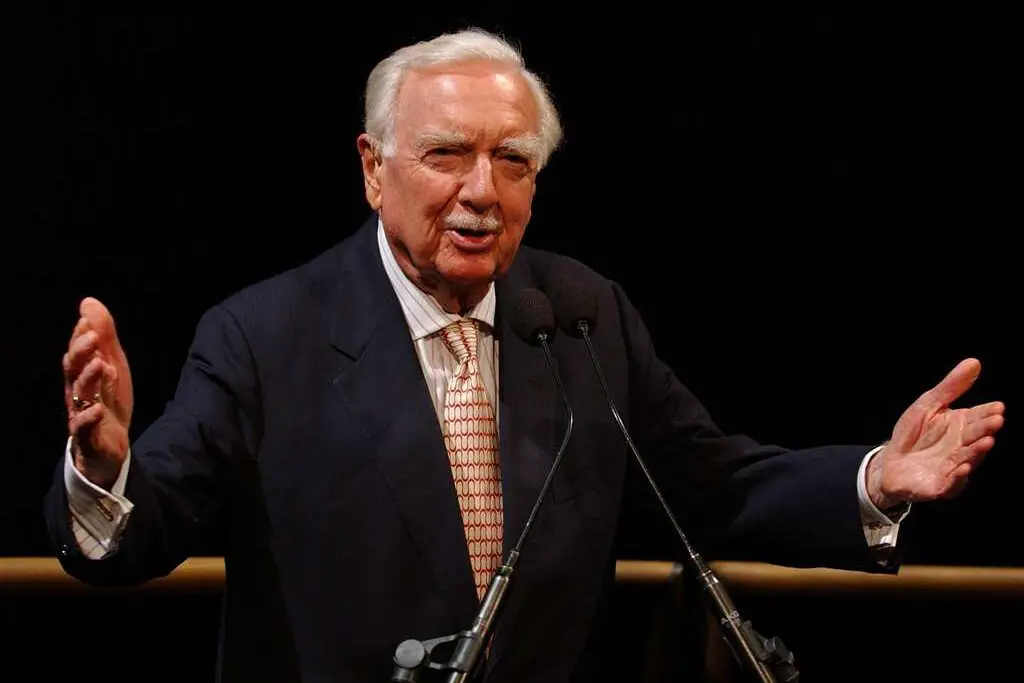
Walter Cronkite wasn’t just a news anchor—he was “the most trusted man in America.” For decades, he delivered the news with a calm, steady presence that made people feel like they were hearing the truth, no matter how difficult it was. His coverage of major events like the JFK assassination, the moon landing, and Watergate cemented his reputation as someone who never sensationalized the facts. When Cronkite said, “And that’s the way it is,” viewers believed him says Wikipedia.
He famously broke his usual impartiality when he spoke out against the Vietnam War, saying it seemed unwinnable. That moment was so powerful that President Lyndon B. Johnson reportedly said, “If I’ve lost Cronkite, I’ve lost Middle America.” In an era when trust in politicians wavered, Cronkite’s word felt like gospel. Even after retiring, his influence lingered, and to this day, he’s the gold standard for journalists shares Britannica.
2. Dan Rather
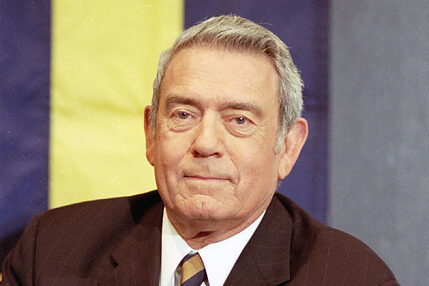
Dan Rather was a fighter in the world of journalism, never shying away from tough stories. As the face of CBS Evening News for decades, he had a way of making even the most complex news understandable. His reporting from Vietnam put him on the map, and his fearless coverage of Watergate only solidified his reputation. Rather wasn’t afraid to challenge those in power, which made him a hero to some and a target to others shares Kansas State University.
His career had its share of controversies, but people respected his relentless pursuit of the truth. He famously walked out of a live broadcast in protest after CBS cut his segment short for a tennis match. His Texas drawl and straightforward delivery made him a staple in American homes. Even in retirement, Rather remains vocal about the state of journalism, proving he’s always been more about the truth than politics says CBS News.
3. Peter Jennings
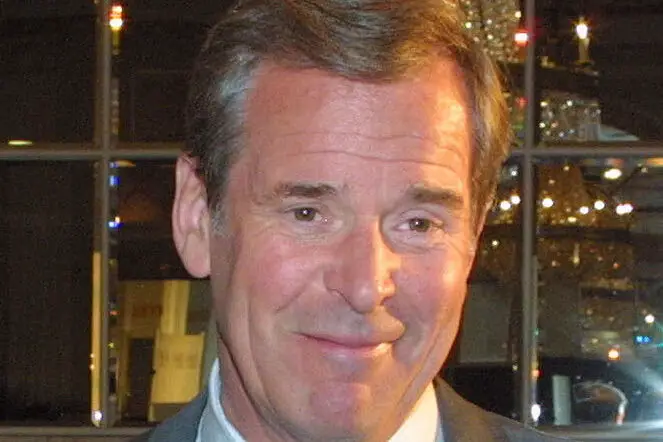
Peter Jennings had a smooth, authoritative voice that made viewers feel like they were in good hands. As the longtime anchor of ABC World News Tonight, he brought a worldly perspective, having reported from dozens of countries before taking the anchor chair. His coverage of events like the Gulf War and 9/11 showcased his ability to remain composed under pressure. He had a knack for explaining complicated global issues in a way that didn’t feel overwhelming.
Jennings wasn’t just reading from a teleprompter—he was deeply involved in the stories he covered. He once admitted he felt regret over not being tougher on the government leading up to the Iraq War, showing a rare level of self-reflection for a journalist. His coverage of 9/11, where he stayed on air for hours without a break, reassured a nation in shock. When he announced his lung cancer diagnosis on air, viewers felt like they were losing a friend.
4. Tom Brokaw
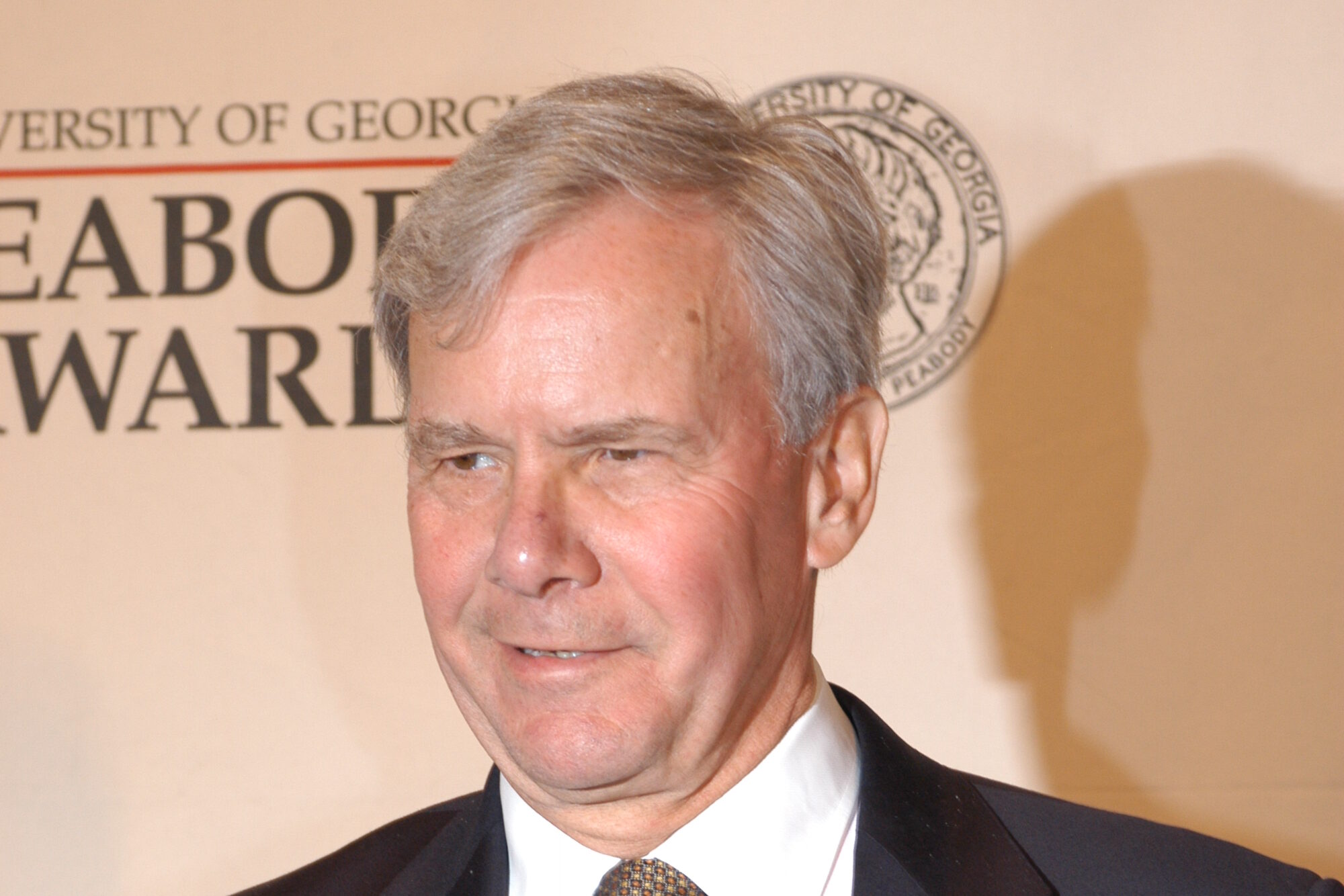
Tom Brokaw became the voice of reason for an entire generation. As the anchor of NBC Nightly News for over 20 years, he was the steady presence people turned to during major events. His deep, reassuring voice made the news feel less scary, even when the world was in chaos. He was especially known for his deep understanding of history, which gave his reporting extra weight. His book The Greatest Generation further proved his ability to connect with audiences beyond the news desk.
Brokaw’s interviews with presidents and world leaders never felt like softball questions, but he always remained respectful. During the 2000 election chaos, his calm analysis helped people make sense of the uncertainty. Even after stepping down, he continued to be a respected voice in journalism. When trust in politicians wavered, Brokaw was one of the few journalists people still believed in.
5. Edward R. Murrow
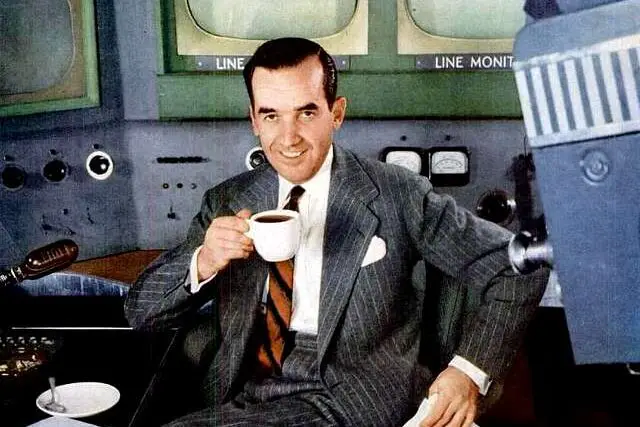
Edward R. Murrow wasn’t just a news anchor—he was a pioneer. He made his name reporting from the front lines of World War II, bringing the reality of war into American living rooms. His calm, steady voice during the London bombings reassured people thousands of miles away. Later, he took on Senator Joseph McCarthy during the Red Scare, exposing the dangers of political fear-mongering. His boldness in the face of political pressure made him a legend.
Murrow believed journalism should serve the public, not politicians. His famous “Good night, and good luck” sign-off wasn’t just a catchphrase—it was a mission statement. He wasn’t interested in pleasing those in power, which made him one of the most trusted voices of his time. Even today, journalists look up to him as a model of integrity in a profession that often struggles with it.
6. Chet Huntley and David Brinkley
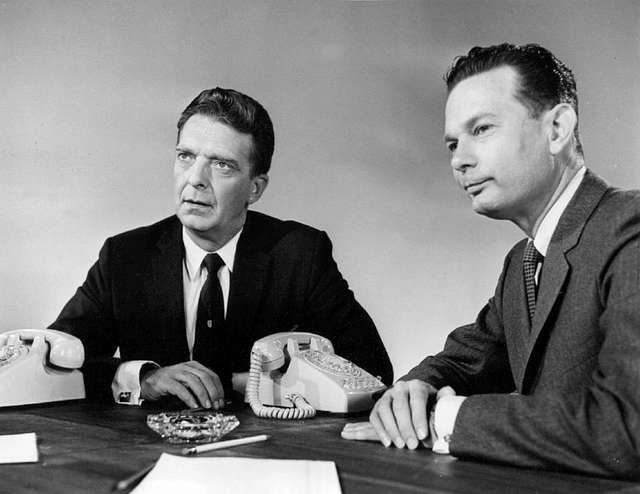
Chet Huntley and David Brinkley were an unbeatable duo in television news. Together, they co-anchored The Huntley-Brinkley Report for NBC, offering a perfect balance of professionalism and personality. Huntley had a serious, no-nonsense approach, while Brinkley brought a touch of dry humor. Their chemistry made the news feel more human, even when covering heavy topics like the Cold War or civil rights movement.
They didn’t always agree with each other, which gave their broadcasts a refreshing honesty. While politicians were busy spinning stories, Huntley and Brinkley just told the news as it was. Their famous sign-off—“Good night, Chet.” “Good night, David.” “And good night for NBC News.”—became iconic. Even after they parted ways, their influence on television journalism never faded.
7. Harry Reasoner
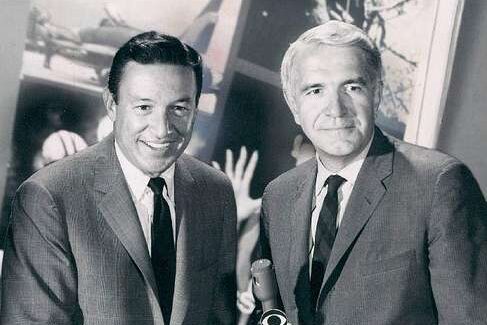
Harry Reasoner had a dry wit and an effortless charm that set him apart. He helped launch 60 Minutes, one of the most influential news programs in history. His ability to blend hard-hitting journalism with a conversational style made the news feel approachable. He was never afraid to challenge authority, but he did it in a way that felt thoughtful rather than confrontational.
Reasoner also spent time anchoring ABC Evening News, proving his versatility. He had a way of cutting through political spin and getting to the heart of a story. While politicians often seemed rehearsed, Reasoner came across as genuine. His legacy lives on in the storytelling approach still used on 60 Minutes today.
8. John Chancellor
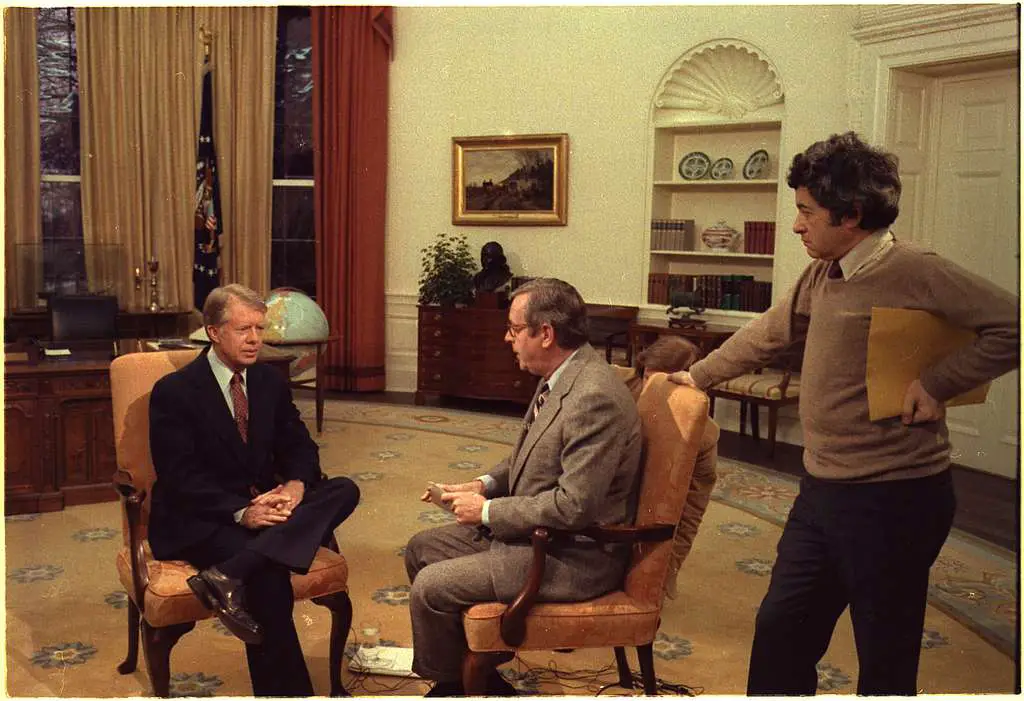
John Chancellor had a quiet confidence that made viewers trust him. As the anchor of NBC Nightly News, he brought a sense of stability during turbulent times. He covered everything from the Civil Rights Movement to Watergate with a calm, measured approach. Unlike many politicians, Chancellor never talked down to his audience—he respected their intelligence.
He started as a print journalist before transitioning to television, which gave him a deep appreciation for facts. He once famously told protesters at the 1964 Republican Convention, “You’re blocking my shot,” proving he had a sense of humor even in tense situations. He retired with his integrity intact, something few politicians can say. His straightforward style remains a blueprint for serious journalism.
9. Barbara Walters
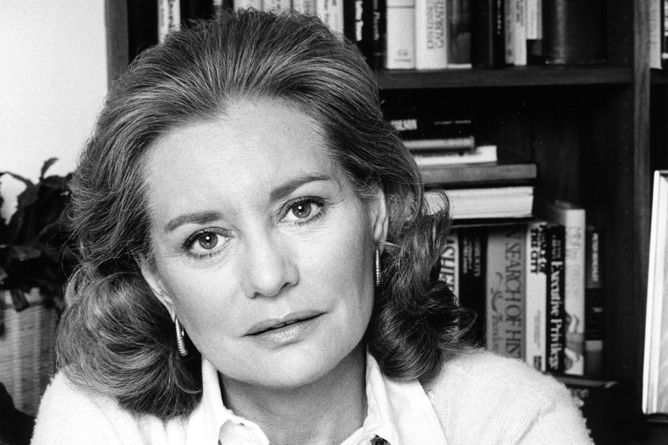
Barbara Walters broke barriers in a male-dominated industry. She became the first female co-anchor of a network evening news broadcast, paving the way for countless women in journalism. But she wasn’t just a trailblazer—she was a master interviewer. Whether she was grilling world leaders or making celebrities cry, she had an uncanny ability to get people to open up.
Politicians knew they couldn’t dodge her tough questions. She interviewed every U.S. president from Nixon to Obama, proving her staying power. Walters never let her emotions get in the way of a good story, but she always maintained warmth. Her mix of sharp intellect and relatability made her one of the most trusted journalists of all time.
10. Eric Sevareid
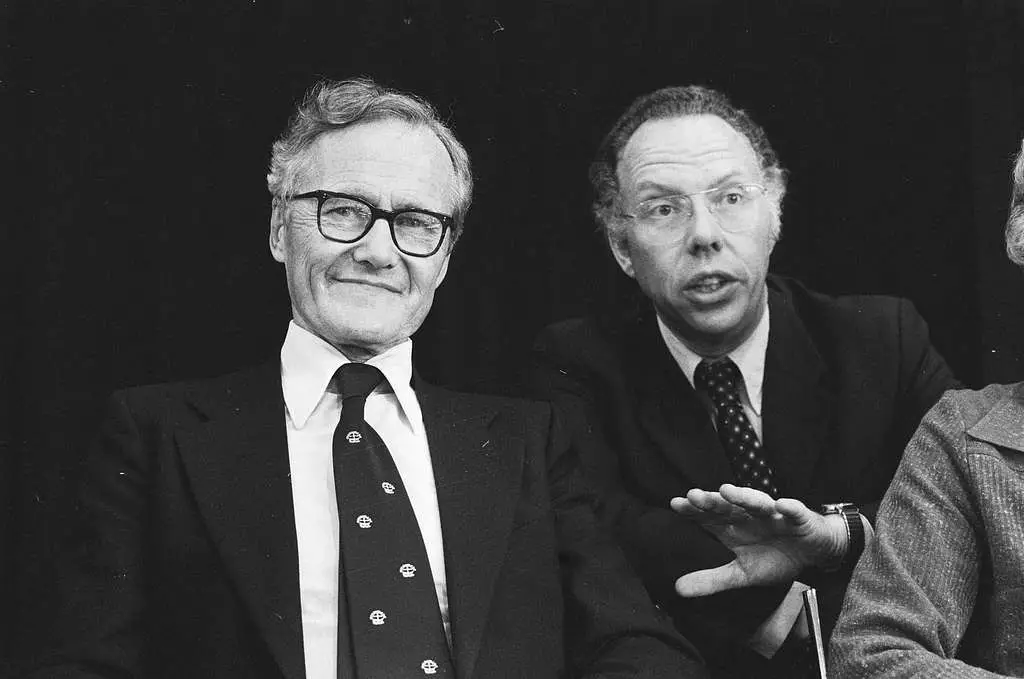
Eric Sevareid was one of the last great broadcast journalists with a deep background in print reporting. As one of Edward R. Murrow’s “boys,” he brought a level of analysis to television news that was rare at the time. His commentary segments on CBS Evening News weren’t just summaries of the day’s events—they provided historical context and thoughtful insight. He covered World War II from the front lines and later became a trusted voice on domestic issues like civil rights and Vietnam.
Unlike many politicians, Sevareid didn’t rely on slogans or empty rhetoric. He believed in nuance and wasn’t afraid to challenge conventional wisdom. His ability to break down complex topics into something digestible made viewers feel smarter, not just informed. While others chased headlines, Sevareid focused on understanding the bigger picture. His legacy is one of journalistic integrity and intellectual honesty.
11. Howard K. Smith
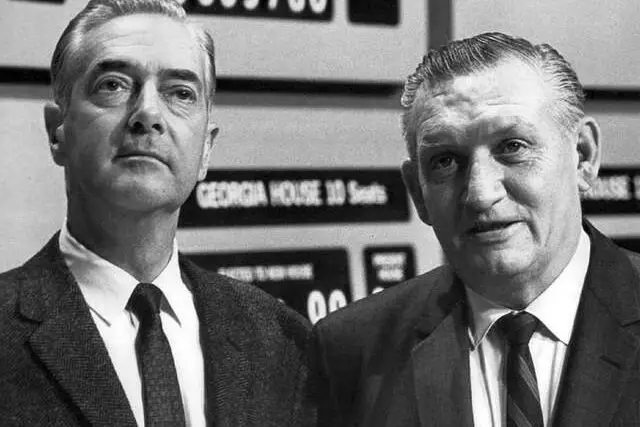
Howard K. Smith had a sharp mind and an even sharper sense of justice. He got his start as a war correspondent, covering Nazi Germany with a bravery that set the tone for his career. Later, as an anchor for ABC News, he became known for his thoughtful, well-researched reporting. He wasn’t afraid to speak out against racial injustice, even when it made him enemies in political circles.
Smith’s broadcasts always felt like they had a moral backbone. He believed journalism should hold the powerful accountable, not act as their mouthpiece. His commentary on major events, from the Civil Rights Movement to Watergate, reflected a deep commitment to truth. While politicians often danced around the facts, Smith tackled them head-on. His unwavering dedication to honest reporting made him one of the most respected journalists of his time.
12. Douglas Edwards
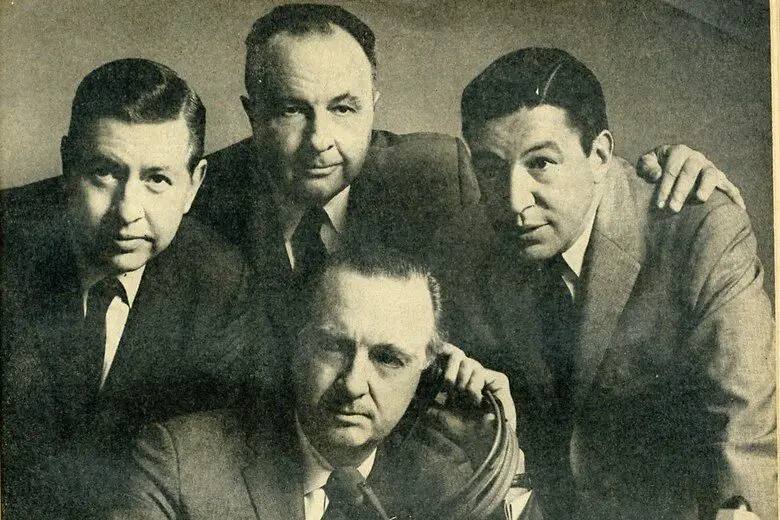
Douglas Edwards was television’s first network news anchor, paving the way for everyone who came after him. As the original host of CBS Evening News, he set the standard for what a trustworthy anchor should be. His calm, steady delivery reassured viewers during the Cold War and other turbulent moments in history. Even as television news evolved, Edwards remained a constant presence of reliability.
He didn’t rely on theatrics or sensationalism—just the facts, delivered clearly and concisely. While politicians were busy spinning narratives, Edwards was busy reporting the truth. His career spanned decades, and he never lost the respect of his audience. When he signed off each night with “Good evening, everyone,” viewers knew they were getting an honest take on the day’s events.
13. Frank Reynolds
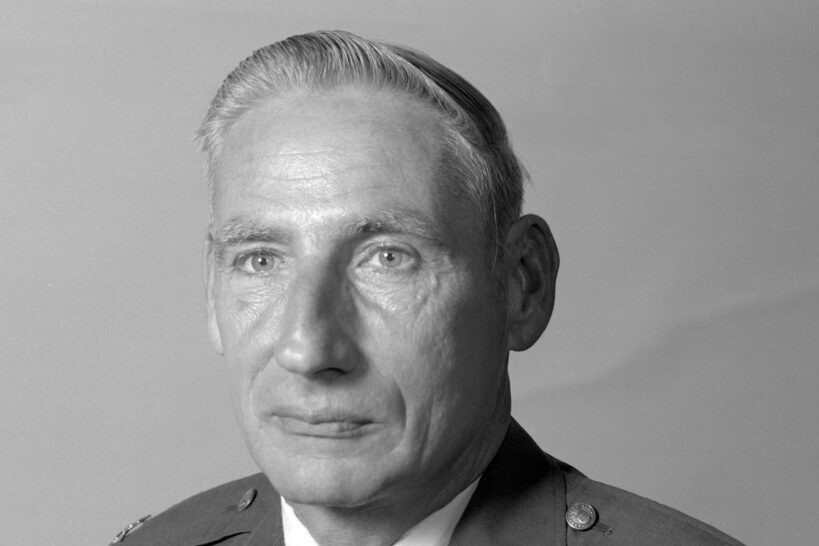
Frank Reynolds was known for his deep emotional investment in the news. As an anchor for ABC News, he had a no-nonsense approach that made him stand out. He covered everything from political conventions to space exploration, but it was his coverage of the 1981 assassination attempt on President Reagan that people remember most. When the initial reports were chaotic and unclear, Reynolds grew visibly frustrated, demanding accurate information.
That moment made him even more relatable to viewers—he wasn’t just reading the news; he cared about getting it right. He wasn’t afraid to show emotion, but he never let it compromise his professionalism. Unlike many politicians who sidestep the truth, Reynolds made it clear he valued honesty above all. His passion for journalism made him one of the most trusted news anchors of his generation.
